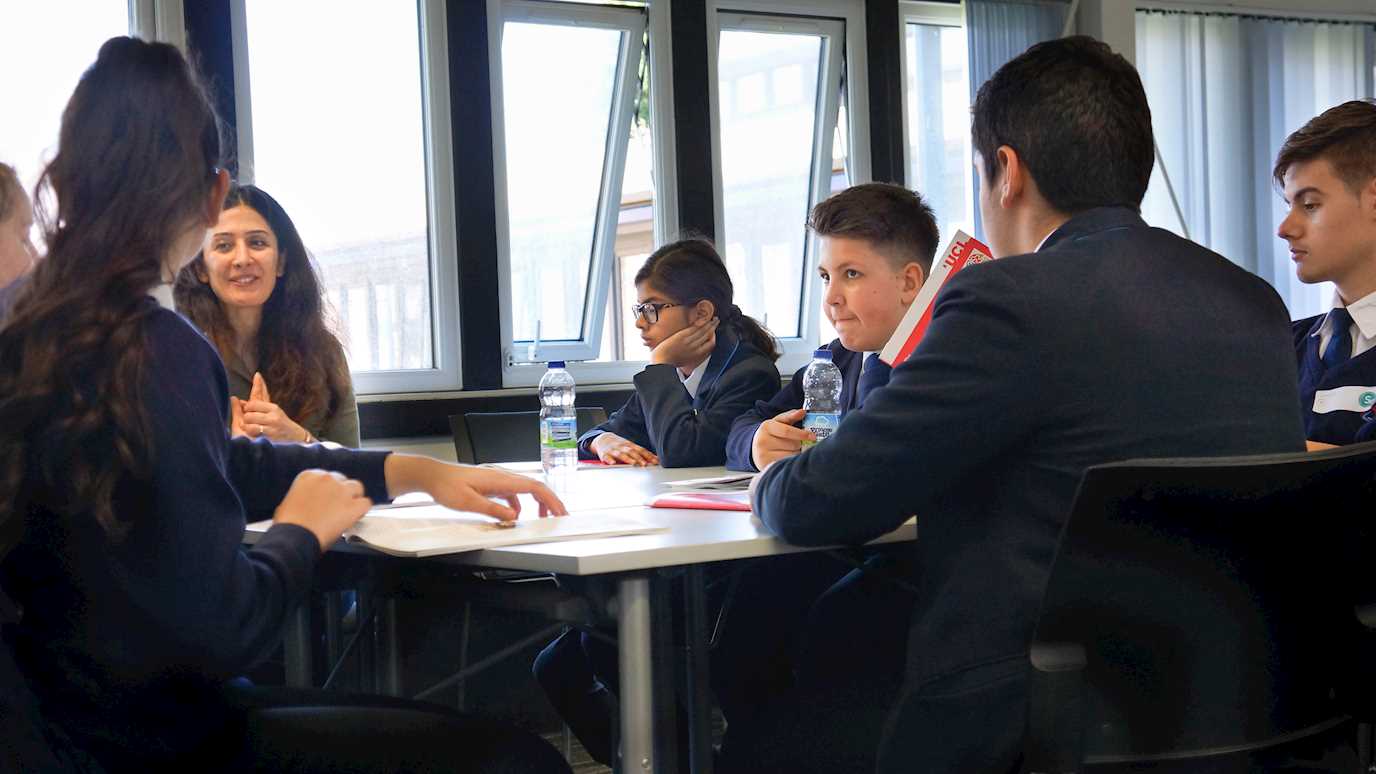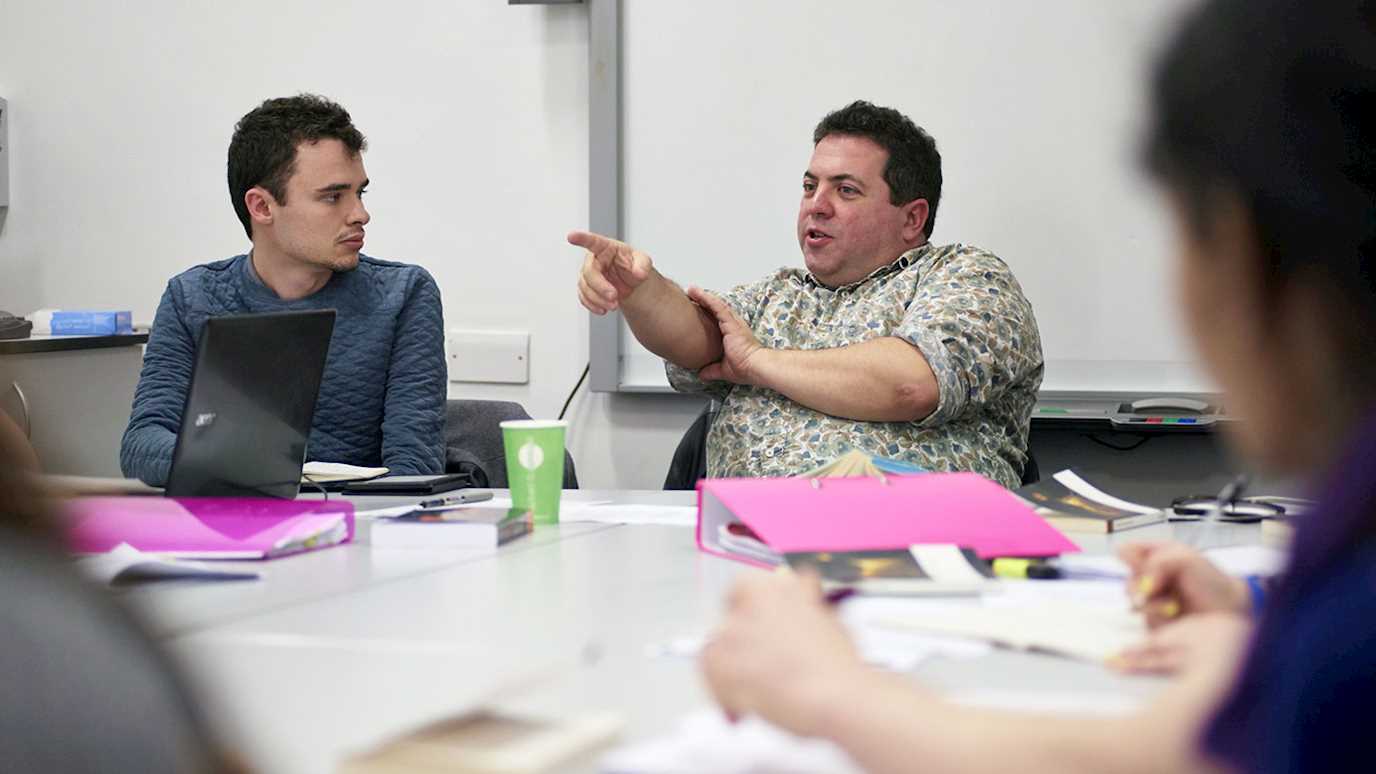Professor Tim Armstrong on The Return of the Soldier
Key points
- The Return of the Soldier is about time travel, where the central characters do not quite align with our traditional understanding of linear temporality
- Chris suffers from a shock of the decline of the gentry, which is an inevitable part of encroaching modernity. Ironically, Chris’s own wife seems to embody this sense of modernity.
- The story is vocalised and narrated by Jenny, who is a romancier, filling in the missing parts of the story of Monkey Island
- States of shock and types of wounds are displaced amongst the characters’ bodies, who all absorb pain in individual ways
- It is only at the end of the novel that we get the fullest description of the war. At this point, the reader knows that Chris has been cured to the extent that he can return to the front, and by extension, to his potential death.
Quotations
- 'Strangeness had entered the house and everything was appalled by it'
The Return of the Soldier, p. 54. - 'The trees moved not like timber, shocked by wind, but floatingly, like weeds at the bottom of a well of sunshine.'
The Return of the Soldier, p. 72. - 'Then a heron flapped gigantic in front of the moon, and swung in wide circles round the willow-tree before them. "Oh, look!" she cried. He seized the hand she flung upward and gathered her into his arms. They were so for long, while the great bird's wings beat about them.'
The Return of the Soldier, p. 76. - 'I, who had felt his agony all the evening like a wound in my own body, was past speech then, and I did not care what I did to stop her. I gripped her small shoulders with my large hands, and shook her till her jewels rattled and she scratched my fingers and gasped for breath. But I did not mind so long as she was silent.'
The Return of the Solider, pp. 59 – 60. - 'I saw her arms brace him under the armpits with a gesture that was not passionate, but rather the movement of one carrying a wounded man from under fire.'
The Return of the Soldier, p. 117. - 'We kissed not as women, but as lovers do; I think we each embraced that part of Chris the other had absorbed by her love.'
The Return of the Soldier, p. 181. - 'We were all of us in a barn one night, and a shell came along. My pal sang out, 'Help me, old man; I 've got no legs!' and I had to answer, 'I can't, old man; I've got no hands!''
The Return of the Soldier, p. 8. - '"He 's cured!" she whispered slowly. "He 's cured!"'
The Return of the Solider, Page 185. - 'he would go back to that flooded trench in Flanders, under that sky more full of flying death than clouds, to that No-Man's-Land where bullets fall like rain on the rotting faces of the dead.'
The Return of the Soldier, p. 184.
Further reading
- Mackay, Marina. ‘The Lunacy of Men, the Idiocy of Women: Woolf, West, and War’. NWSA Journal 15 (2003): 124–44. http://www.jstor.org/stable/4317013.
This essay argues that the parallel careers of Rebecca West and Virginia Woolf illuminate the extent to which modernist women writers came to identify the centrality of feminist consciousness in an understanding of public violence. In their fictional representations of World War I, West’s The Return of the Soldier (1918) and Woolf's Jacob’s Room (1922), both authors use narrative indirections to diagnose the two problems of patriarchal culture: that it glorifies militaristic and materialistic models of masculinity (what West calls ‘lunacy’), and that it renders women complicit in male violence (the corresponding ‘idiocy’). Almost two decades later, they address World War II in their non-fiction: Woolf’s pacifist polemic Three Guineas (1938) and West’s hybrid travelogue Black Lamb and Grey Falcon (1941). With a conscious self-referentiality, these two later works posit women's writing as the only antidote to the apparently interminable public violence of men and to the deceptions of women's attempts at private disengagement. - Pulsifer, Rebecah. ‘Reading Kitty's Trauma in Rebecca West's The Return Of The Soldier’. Studies in the Novel 45 (2013): 37–55. http://www.jstor.org/stable/23406583.
- Rizzuto, Nicole. ‘Towards an Ethics of Witnessing: Traumatic Testimony in Rebecca West’s The Return of the Soldier’. College Literature 39, no. 4 (2012): 7-33. https://muse.jhu.edu/
Argues that Rebecca West’s wartime novel The Return of the Soldier (1918) elaborates an ethics of witnessing historical pasts which have been cut off. Its staging of testimony as an intertextual and allegorical discourse challenges a common way of thinking about modernity which considers the Edwardian era and the Great War as traumatic ruptures in the continuity, stability, and stasis of an earlier period in British history. Although the novel appears to repeat this paradigm by plotting trauma as a soldier’s war illness that results in amnesia and mourning of a lost, apparently idyllic Victorian past, the rhetoric of witnessing troubles this narrative of loss. By invoking other literary representations of memory, testimony reveals how this nostalgic narrative obscures colonial trauma and socio-political and economic inequities of gendering that shaped the Victorian era. I conclude that attending to testimony enables a precarious reconstruction of the age of empire from marginal perspectives enfolded in the novel. - Pinkerton, Steve. ‘Trauma and Cure in Rebecca West’s The Return of the Soldier’. Journal of Modern Literature 32, no. 1 (2008): 1-12. https://muse.jhu.edu/
Two critical trends have persisted with surprising resilience in scholarship on Rebecca West’s novel The Return of the Soldier: first, the wholesale dismissal, for psychoanalytic as well as purely literary reasons, of amnesiac Chris Baldry’s climactic ‘cure’, and second, the underestimation and general neglect of Chris’s sweetheart, Margaret Allington. Drawing on the work of Françoise Davoine and Jean-Max Gaudillière, this essay argues that the soldier’s cure in fact emerges as a highly convincing transferential encounter in light of recent advancements in trauma theory, and that Margaret — an intuitive analyst and therapist — is crucial to Chris’s final transformation, for better or worse. The essay thus makes the case for a reappraisal of an unduly slighted character — that is, for the recognition of Margaret’s powerful agency in the text — while also arguing for the psychoanalytic relevance of The Return’s controversial conclusion.
Web links
- The British Library has collected a wide range of resources which gives insights into World War I from the perspectives of the different countries involved
- The BBC has multiple recordings, programmes and articles on World War I
- Multimedia history of World War I
























